Group consultation: albums by Jo Spence. Bibliothèque Kandinsky
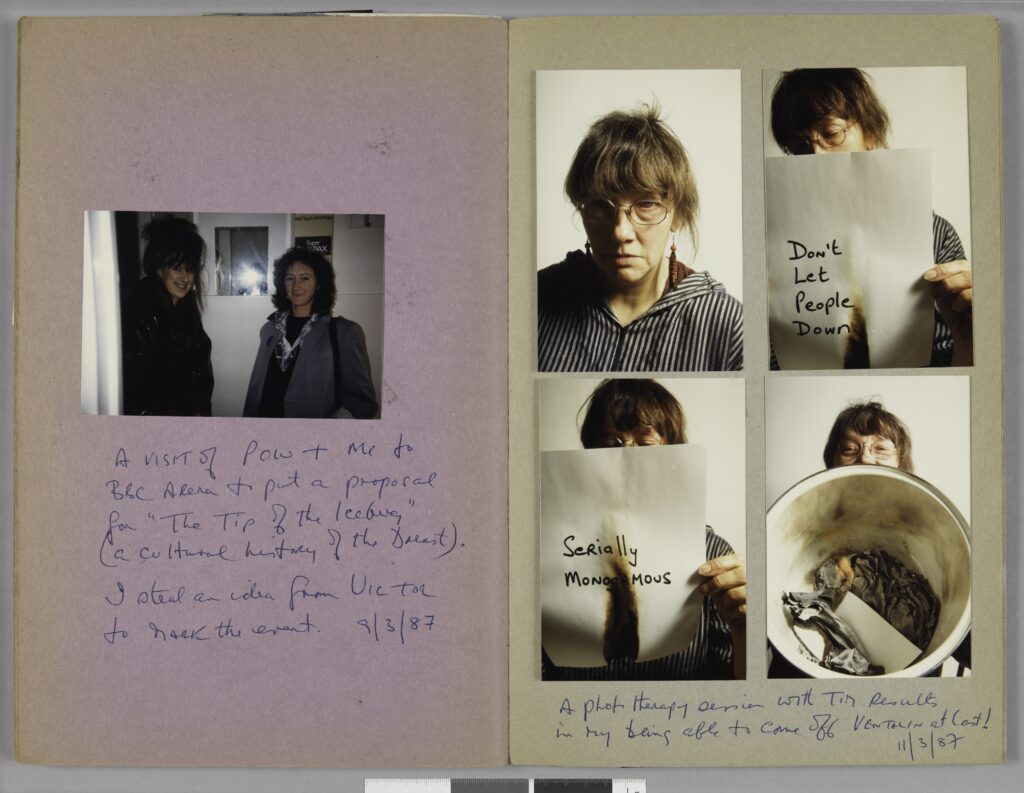
Centre Pompidou/MNAM-CCI/Bibliothèque Kandinsky, Fonds Jo Spence, SPE 19
Photo : © Centre Pompidou, MNAM-CCI, Bibliothèque Kandinsky/Fonds Jo Spence/Dist. GrandPalaisRmn
This evening is part of the exhibition opening at Treize in October 2025, curated by Georgia René-Worms, with the collaboration of Gallien Déjean and Emmanuel Guy. The exhibition will feature more than 120 works and documents; it is the first monographic exhibition dedicated to Jo Spence in France. On this occasion, over twenty pages of scrapbooks will be presented.
Due to the material fragility of these objects, moving them outside the Kandinsky Library is not possible. The evening of June 18 is therefore an opportunity to present these objects, to discuss their uniqueness, and to consider the links they maintain with Jo Spence’s life and wider body of work. Fanny Lautissier, archivist, who completed the inventory and finding aid of the scrapbooks for the Kandinsky Library, will present the history of their entry into the collection in 2018 (gift of the CHANEL Fund for Women in the Arts and Culture via the Friends of the Centre Pompidou, initial purchase from the Richard Saltoun Gallery, London). Patrizia Di Bello, curator of the Jo Spence Memorial Library Archive at Birkbeck, University of London, will discuss the importance of the scrapbooks in Jo Spence’s working method. Art historian Léna Lévy will show how the scrapbooks form one of the foundations of her research (“‘The personal is political.’ Women’s Sick Bodies in Jo Spence and Hannah Wilke,” Perspective, no. 2 / 2024, “Extreme Bodies”). Georgia René-Worms will address the issues of polyphonic writing of the intimate through the different modes of friendship and love-based collaborations that run through Jo Spence’s work, drawing on a selection of scrapbook pages. Finally, before the discussion, Gallien Déjean, Emmanuel Guy, and Georgia René-Worms will reflect together on the stakes of collective self-organization as a curatorial gesture, whether or not connected to Jo Spence’s exhibition practices.
Jo Spence’s photographic and theoretical work addresses questions of class, power, and gender, as well as our relationship to the representation of illness and death. In 1982, she was diagnosed with breast cancer, followed by leukemia in 1990. Until her death in 1992, she dedicated herself to developing a method she called “phototherapy,” using photography as a therapeutic tool to document her struggle with illness. Through phototherapy, she explored self-representation and challenged stereotypes of beauty and health. Her photographic experiments are deeply tied to her personal life; she was also interested in themes of romance and interpersonal relationships, whether familial or friendly.
At the crossroads between self-journal and visual laboratory, these scrapbooks bear witness to a practice where the intimate becomes a political and critical terrain. The scrapbooks reveal the dialogue between the materiality of the intimate, everyday life, and artistic and theoretical research. They seek—and indeed find—the delicate interface between lived life and produced work. The scrapbooks question our ways of classifying and therefore of envisioning things, people, and works: intimate archives, professional archives, pedagogical archives, art. During this consultation session, the aim will be to activate a reading of the political, pedagogical, and affective scope of Jo Spence’s work.
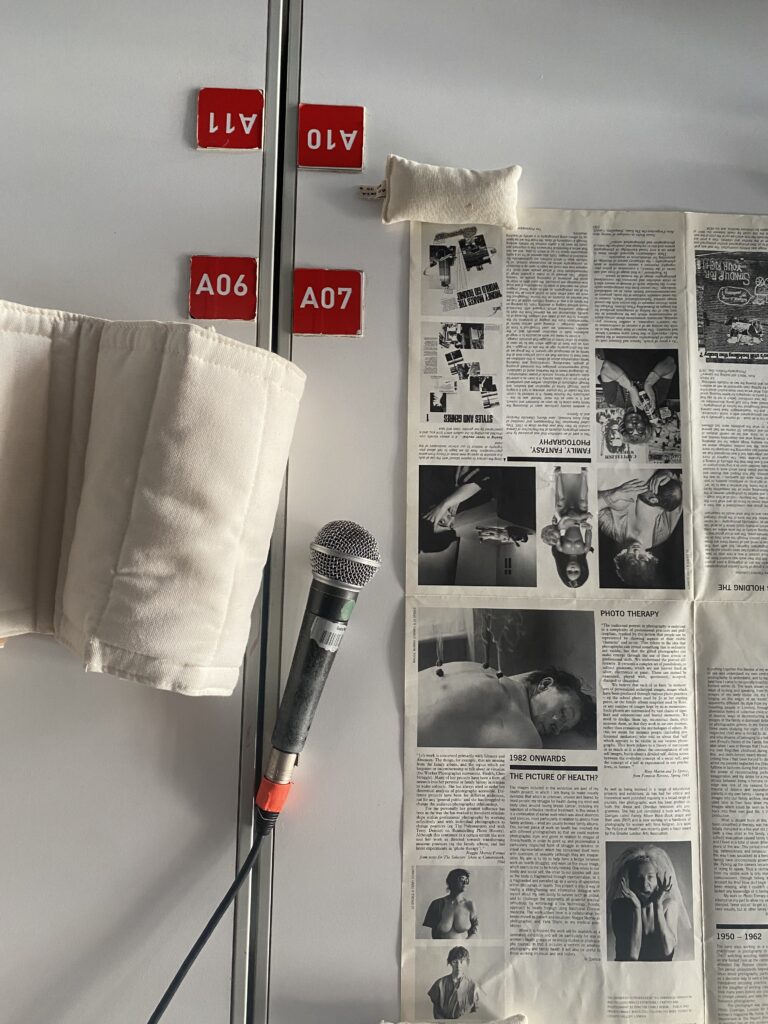
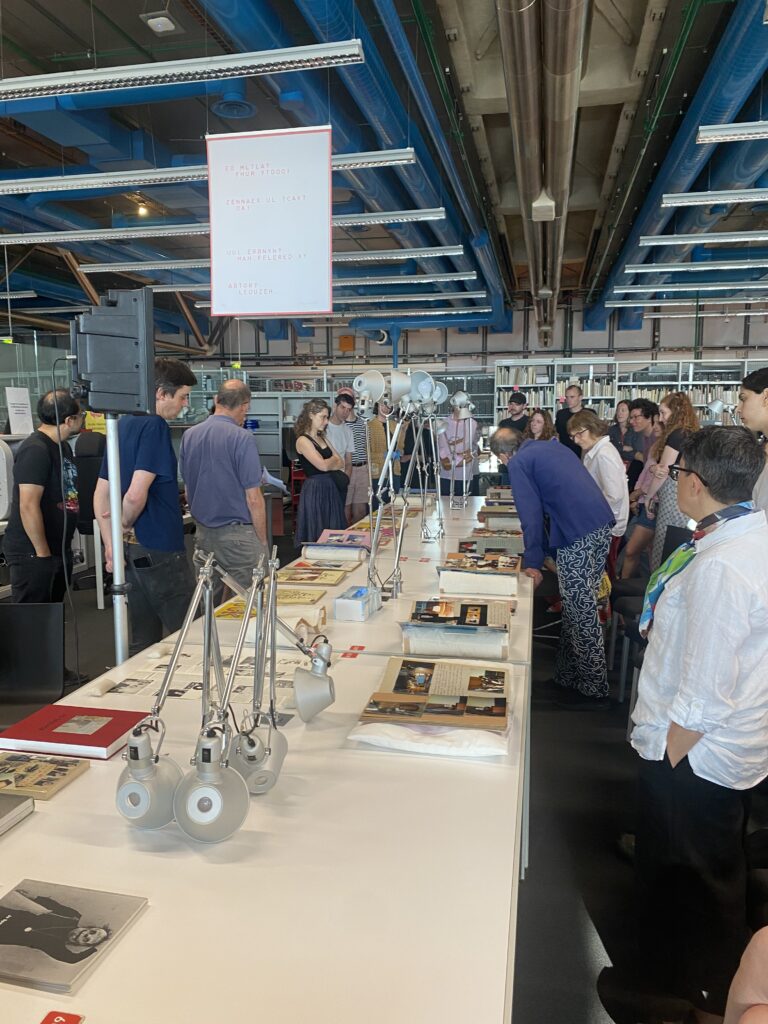
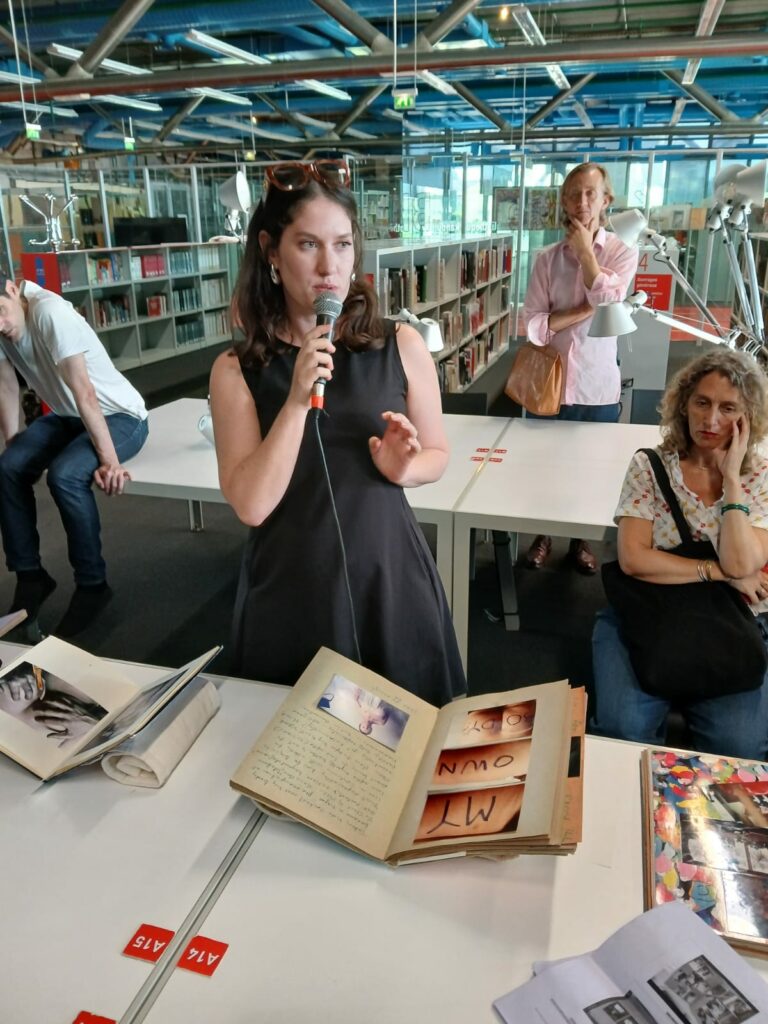
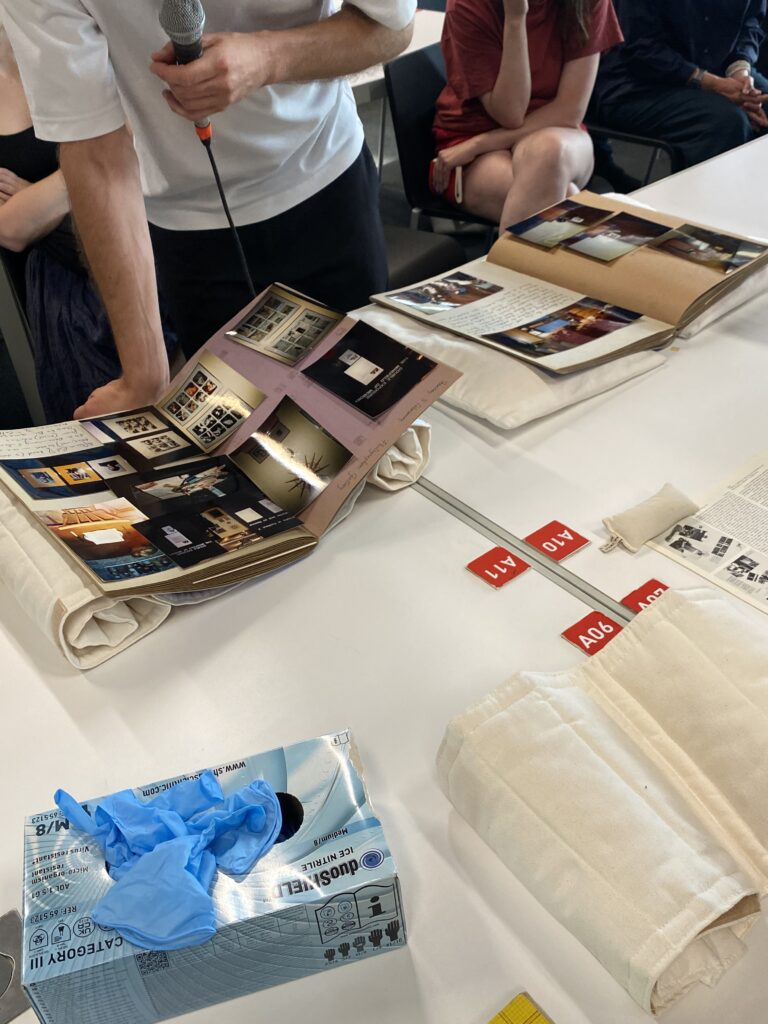
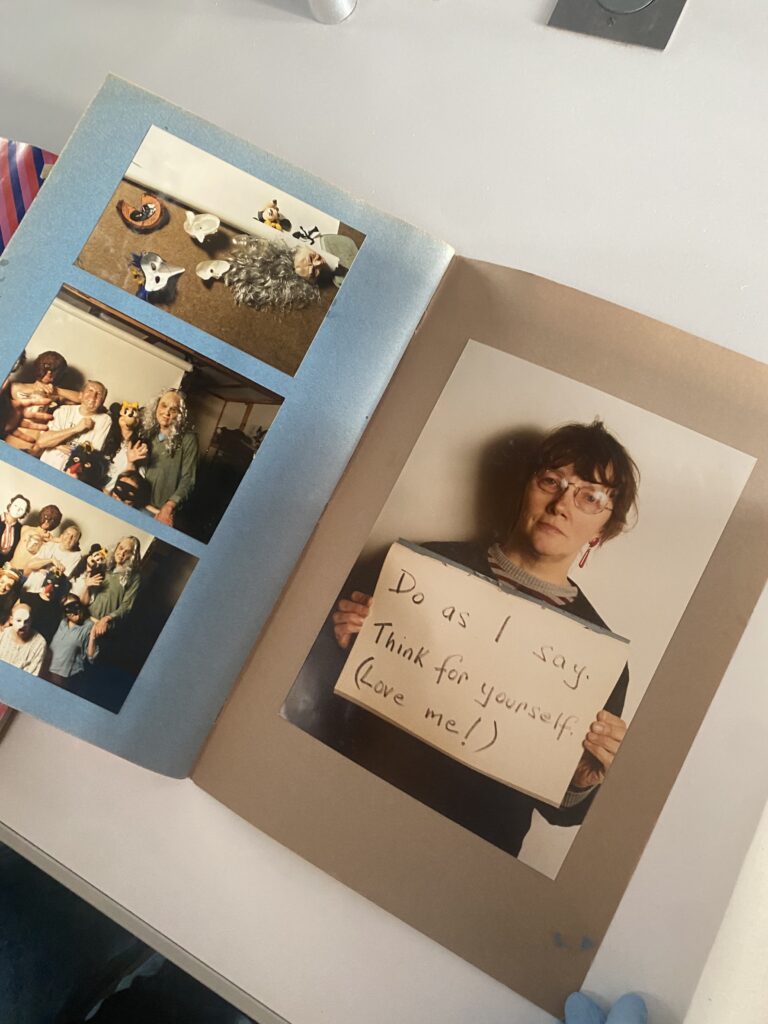
Biographies of the speakers
Patrizia Di Bello is Professor of History and Theory of Photography at Birkbeck, University of London, where she directs the Murray Centre for the History of Art, Architecture and Photography, and is the curator of the Jo Spence Memorial Library Archive. She is also editor-in-chief of the journal History of Photography. Her research focuses on the many forms of women’s engagement with photography—as artists, collectors, and authors—from Julia Margaret Cameron to Ana Mendieta and Jo Spence. She is the author of Sculptural Photographs from the Calotype to Digital Technologies (Bloomsbury, 2017), and co-editor of The Photobook from Talbot to Ruscha (IB Tauris, 2012) with Colette Wilson and Shamoon Zamir. Her first book, Women’s Albums and Photography in Victorian Britain: Ladies, Mothers and Flirts (Ashgate, 2007), explores women’s photographic practices in Victorian England. She is currently working on the critical edition of an anthology of Jo Spence’s writings on photography.
Gallien Déjean is an art historian. He teaches at ENSAPC (France) and ECAL (Switzerland).
Emmanuel Guy is a literature teacher in Seine-Saint-Denis (93) and an art historian.
Both are members of Treize, a space for production, dissemination, and self-organization in Paris. They make exhibitions, write texts, publish books, and often wonder why.
Léna Lévy graduated from ENS Lyon and Paris 1 in art history. She is currently completing a doctoral thesis at Paris 1 on the aesthetic and political stakes of the representation of sick female bodies by women artists from 1970 to the late 1990s, under the supervision of Elvan Zabunyan. She has published several articles, including “‘The personal is political.’ Women’s Sick Bodies in Jo Spence and Hannah Wilke” (Perspective, no. 2 / 2024, “Extreme Bodies”).
Georgia René-Worms is an author-curator whose work unfolds along two lines: a documentary approach rooted in feminist epistemology, and a narrative one. Since 2018, and based on her personal experience, she has been working on creating a corpus—beyond scientific literature—that approaches, in an emancipatory gesture, the history of sick and traumatized bodies and their ecologies of life. Her research and writing are conceived as life experiences where intimacy and work interpenetrate. Her recent projects include the exhibition Nos corps anarchiques (2023), with a forthcoming publication supported by CNAP; A House is Not A Home, Marianne Berenhaut (2024); and Les pensées du cœur: José Leonilson (2025). She is currently preparing, with the collaboration of Gallien Déjean and Emmanuel Guy, a solo exhibition on Jo Spence (October 2025, Treize).